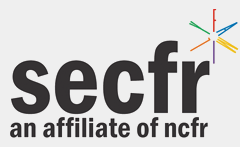Title
Exploration of Factors that Contribute to the Financial Wellbeing of College Students
Proposal Focus
Research
Presentation Type
Presentation
Abstract
Financial decisions among college students can be influenced by experiences with credit and debt services. Some college students may use alternative financial services (AFS; e.g., payday loans and check cashing services) to manage their personal finances to maintain a desired level of financial wellness. Fears about credit card usage may prompt the use AFS or overdraft on accounts due to a limited funds. Thus, some financial decisions, and ultimately, wellbeing may be influenced by financial knowledge, access to financial resources and attitudes towards financial services among college students. This study aims to explore factors (i.e., financial abilities, compulsive buying, materialism, knowledge, credit card, and AFS usage) that contribute to the financial wellbeing of college students. Initial findings from a stepwise regression show increased usage of credit cards (β = -0.08) and AFS (β = -0.08) decreases financial wellbeing while lower materialistic (β = 0.27) attitudes increases financial wellbeing.
Keywords
financial literacy, college students, financial wellbeing
Location
Yorkshire
Start Date
3-4-2020 11:45 AM
End Date
3-4-2020 12:35 PM
Exploration of Factors that Contribute to the Financial Wellbeing of College Students
Yorkshire
Financial decisions among college students can be influenced by experiences with credit and debt services. Some college students may use alternative financial services (AFS; e.g., payday loans and check cashing services) to manage their personal finances to maintain a desired level of financial wellness. Fears about credit card usage may prompt the use AFS or overdraft on accounts due to a limited funds. Thus, some financial decisions, and ultimately, wellbeing may be influenced by financial knowledge, access to financial resources and attitudes towards financial services among college students. This study aims to explore factors (i.e., financial abilities, compulsive buying, materialism, knowledge, credit card, and AFS usage) that contribute to the financial wellbeing of college students. Initial findings from a stepwise regression show increased usage of credit cards (β = -0.08) and AFS (β = -0.08) decreases financial wellbeing while lower materialistic (β = 0.27) attitudes increases financial wellbeing.

